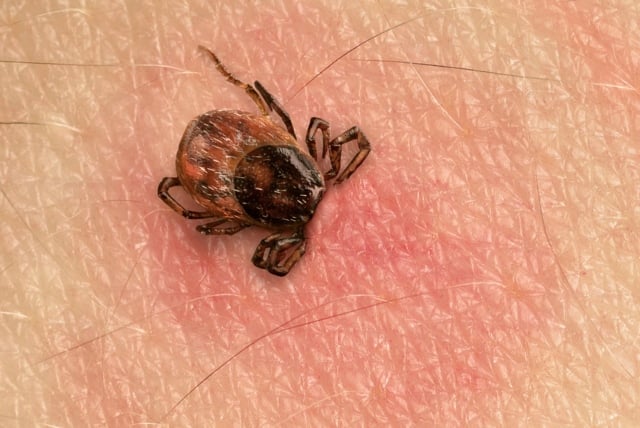According to the Federal Office of Public Health (FOPH), 215 cases of tick-borne encephalitis have been recorded so far this year, which more than double of 97 cases last year.
Most of these cases, 124, occurred in the past four weeks alone, compared to 59 in 2019. This year’s tally is the second-highest in two decades.
Authorities believe that hot weather and the social distancing rules prompted many people to go out into the wooded or grassy areas where the ticks live during the summer months.
A tick bite can cause Lyme disease or encephalitis, a serious condition that affects the brain and can have long-lasting neurological consequences.
READ MORE: Children in Switzerland should be vaccinated against measles if parents don't agree, court rules
While there is no treatment for the tick-borne encephalitis, there is a vaccine which the FOPH said is a good defense against this illness.
It is recommended for adults and children from the age of six who spend time outdoors in the summer.
Vaccines are available at doctors’ offices.
Before you venture outdoors, you can check this map created by the Swiss government. It shows in which regions you are more likely to encounter ticks.
FOPH also recommends downloading the 'tick app' which displays the current tick risk in any given area and shows the correct procedure to follow after a tick bite, among other useful functions.
The app is free for iOS and Android smartphones and tablets.
Also, before you go into wooded areas, take the following precautions:
• Wear long sleeves and trousers, tucking them into boots. Also wear socks and a hat. In other words, cover as much of your body as you can.
• Spray your clothing with a special anti-tick repellant which you can buy in a sports store.
• When you return home, remove the clothing, and check each member of the family — including pets — for ticks.
• If you find one, use fine-tipped tweezers to grasp the tick as close to the skin's surface as possible. Pull upward, don't twist.
• Seek medical help.



 Please whitelist us to continue reading.
Please whitelist us to continue reading.
Member comments